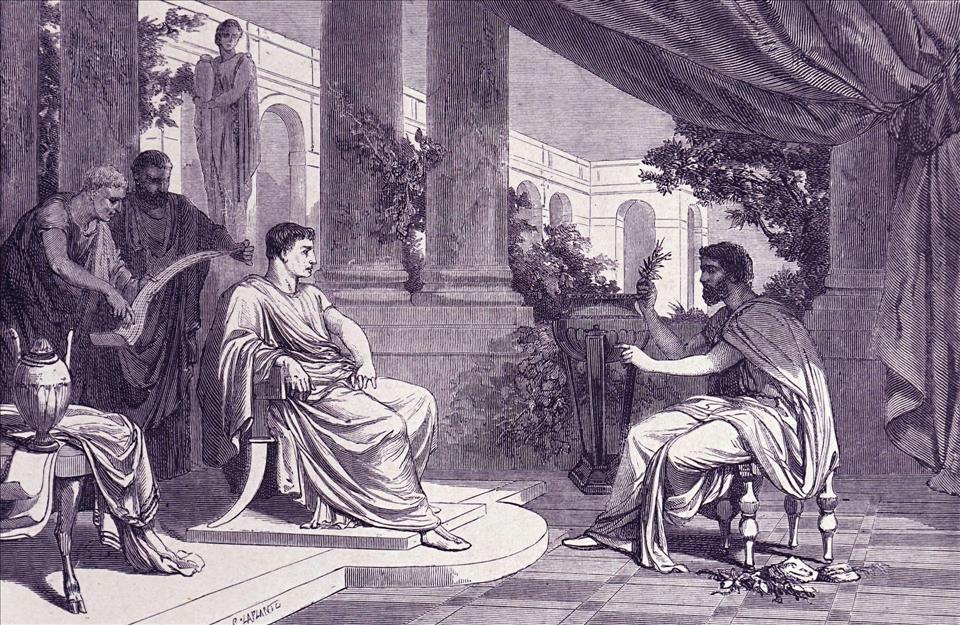
Ancient Greeks And Romans Knew Harming The Environment Could Change The Climate
Since at least the fourth century BC, the ancient Greeks and Romans recognised that the climate changes over time and that human activity can cause it.
They worried deeply about the impact it would have on us as individuals, and on broader society.
The earliest mention of climate change?Greek writer Theophrastus of Eresus (who lived roughly from 372 BCE to 282 BCE) was a student of Aristotle. He is sometimes credited with the earliest reference to climate change.
In his treatise On Winds, Theophrastus notes people in Crete recognised their climate had changed over the centuries:
It's unclear how accurate Theophrastus' account of Crete's climate might be or what time period is meant by the word“once”.
Modern scientific studies suggest that from 8000 BCE to 600 BCE Crete experienced various alternations of climate, for example from humid and warm to dry and warm to cold and humid, while in the time when Theophrastus was writing the climate is meant to have been relatively warm and dry.
Theophrastus' observation shows people handed down information about climate change from generation to generation.
Ancient awareness of the role of humans in climate changeIn ancient Greek and Roman times, some were even aware that human actions could contribute to changes in climate.
The Roman aristocrat Pliny the Elder (23/24-79 CE) wrote a work titled Natural History, in which he gave examples of human induced climate change.
In one passage, Pliny noted that
According to Pliny, because of this change of climate:
Pliny noted this kind of change caused by human activity had happened elsewhere in Greece:
Ancient awareness of long-term climate changesAncient Greeks and Romans understood the climate is not static over time.
The Roman writer Columella (active around 50 CE) noted in his work On Agriculture that climate change had been mentioned by earlier writers:
Columella refers to the Roman writer Saserna (who was active in the early first century BCE). Saserna had observed how:
Saserna did not, however, attribute these long-term climactic changes to human activity. He suggested they were caused by the position of the Earth in relation to the Sun and the other planets, writing that:
Ancient responses to climate changeGreek and Roman writers sometimes complained about the destruction being done to the environment.
Roman writer Pliny the Elder said that:
However, most ancient authors tended not to link environmental damage or pollution with climate change as much as we do today. The exception is when they talk about the draining of lakes or diversions of rivers, which worried many.
Some ancient leaders, such as Roman emperor Nerva, took action to clean up the environment. Universal Images Group/Getty
Ancient authors did, however, see protection of the environment as a serious concern. Their view was making the environment unhealthy would make people unhealthy, too.
For example, the physician Galen (129-216 CE) said that in his time the Tiber River in Rome was so polluted that it was not safe to eat fish caught there. Nonetheless, many people ate the fish, got sick, and died. The main pollution sources were sewage and rubbish.
Some ancient leaders took action to clean up the environment.
For instance, the Roman emperor Nerva (who ruled 96-98 CE) undertook construction works that caused the appearance of the city to be“clean and altered” and made the air“purer”, according to the Roman writer Frontinus.
What the modern world can learnAncient Greek and Roman writings reveal ancient concerns about our negative impact on the environment.
They show that places once rich and fertile later became desolate and barren.
Although the Greeks and Romans linked environmental harm with climate change to a more limited extent than we do today, they nevertheless knew harming the environment could change the climate.
This, they understood, can ultimately bring harm to ourselves personally and to our societies as a whole.

Legal Disclaimer:
MENAFN provides the
information “as is” without warranty of any kind. We do not accept
any responsibility or liability for the accuracy, content, images,
videos, licenses, completeness, legality, or reliability of the information
contained in this article. If you have any complaints or copyright
issues related to this article, kindly contact the provider above.


















Comments
No comment